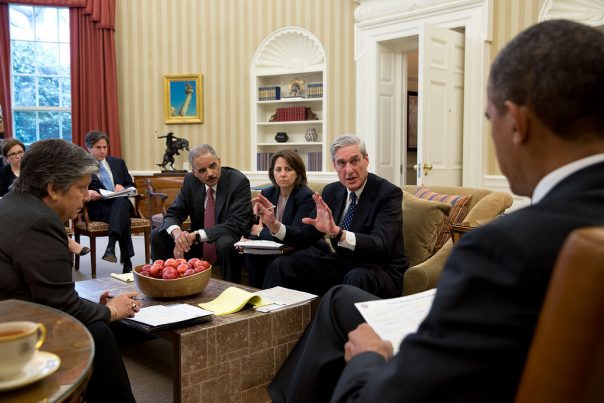
FISA warrants and Team Trump spying: What did OBAMA know and when did he know it?
Sunday, February 04, 2018 by JD Heyes
http://www.policestate.news/2018-02-04-fisa-warrants-and-team-trump-spying-what-did-obama-know-and-when-did-he-know-it.html

More information continues to be revealed and released following Friday’s publication of the scandal-filled FISA memo.
It has now become clear that there is very likely a direct link from the FISA warrant approval process to the former president of the United States, Barack Obama.
Here’s an analysis not only of how the FISA warrant process works and who is involved, but how the information regarding current counterintelligence investigations, FISA warrant applications, and approval processes are relayed daily to the sitting president.
Let’s begin here. As ABC News reports:
The Foreign Intelligence Surveillance Court, commonly referred to as the “FISA Court,” is a secret tribunal with legal authority to grant (or deny) warrants for electronic surveillance against would-be spies or terrorists.
The court — made up of 11 federal judges, serving 7-year terms and selected by the chief justice of the Supreme Court — meets in private, sometimes in the middle of the night. FISA targets are highly classified.
More than a thousand applications for electronic surveillance, all signed by the attorney general, are submitted each year, and the vast majority are approved.
The Obama administration issued a blanket denial after President Donald J. Trump claimed he was “wiretapped” by his predecessor March 2017:
“A cardinal rule of the Obama administration was that no White House official ever interfered with any independent investigation led by the Department of Justice. As part of that practice, neither President Obama nor any White House official ever ordered surveillance on any U.S. citizen. Any suggestion otherwise is simply false.”
But changes made to the original Foreign Intelligence Surveillance Act of 1978 — via the FISA Amendments Act of 2008 (and renewed in December 2012) give presidents and the intelligence community much more latitude when it comes to surveillance of “foreign” persons.
As explained by Yale Law professor Jack Balkin in 2009:
The FISA Amendments Act of 2008, effectively gives the President – now President Obama – the authority to run surveillance programs similar in effect to the warrantless surveillance program [secretly implemented by George Bush in late 2001]. That is because New FISA no longer requires individualized targets in all surveillance programs. Some programs may be ‘vacuum cleaner’ programs that listen to a great many different calls (and read a great many e-mails) without any requirement of a warrant directed at a particular person as long as no US person is directly targeted as the object of the program.
As the Brookings Institute noted in a policy paper arguing for the Trump administration to renew legislation reauthorizing Section 702 of the FISA Act, which clarifies warrant requirements of the Foreign Intelligence Surveillance Act, information gathered via FISA warrants “sometimes known as PRISM, comprises a large part of the President’s Daily Brief.“
If you can believe that Obama’s attorney general — the one who spoke with the former president-husband of a suspect currently under investigation for Espionage Act violations (Hillary Clinton) — would not have informed the head of the Executive Branch that his intelligence community was spying on a rival presidential campaign, well, okay.
But then, that information very probably was included in the President’s Daily Intelligence Brief.
There’s more; Brookings’ policy paper arguing on behalf of maintaining Sect. 702 also noted this important distinction:
We often think about 702 as an NSA authority, but it is also to a significant degree an FBI authority. Thus, the person and the integrity of the FBI director is critically important to the integrity of the program.
We now know, thanks to the release of the FISA memo on Friday, that James Comey was involved in approving the FISA warrants used to spy on Trump campaign foreign policy advisor Carter Page over his alleged “ties” to Russia (foreign intelligence targets).
Putting all of this circumstantial and direct evidence together begs the question: How likely is it that Obama — who received many of his daily briefings electronically — didn’t know that Trump’s campaign was under surveillance?
J.D. Heyes is also editor-in-chief of The National Sentinel.
Sources include:
Tagged Under: Tags: corruption, daily intelligence briefs, DOJ, FBI, FISA court, FISA warrants, High Priority, James Comey, knowledge, loretta lynch, President Obama, President Trump, spying, treason, Trump campaign, Tyranny, White House





